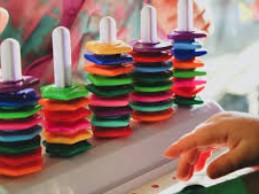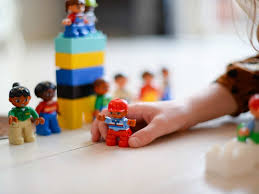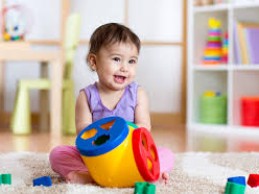
Childhood is a time of wonder, curiosity, and rapid growth. It is a stage in which children explore the world around them, taking in knowledge and developing abilities that will influence their future. While play might seem like an innocent pastime, it is, in fact, essential to a child's growth and development.
As parents and caregivers, we all want to give our children the best start in life, and toys play a crucial role in their development milestones.
From building blocks to puzzles, dolls to action figures, toys are not just a source of fun and entertainment; they are powerful tools that help shape our children's cognitive, physical, and social skills.
In this blog, we will look into the fascinating world of childhood play and explore how toys hold an instrumental role in enhancing a wide range of skills in children.
Why Are Toys Important For Children: How Do They Help
Toys play an important role in a child's development, providing a number of benefits that help in their growth and learning. Here are some of the reasons why toys are important for children and how they help them grow:
1. Stimulate Imagination And Creativity
Toys promote imaginative play by allowing children to build and explore their own worlds. Children acquire storytelling skills, problem-solving abilities, and creativity through pretend play with dolls, action figures, or playsets.
2. Enhance Cognitive Development
Building blocks, puzzles, and educational toys foster critical thinking, spatial awareness, and logical reasoning in kids. These toys promote cognitive development by encouraging problem-solving, hand-eye coordination, and fine motor skills.
3. Foster Social Skills
Many toys are meant to encourage social interaction, cooperation, and communication skills. Board games and cooperative playsets teach kids how to take turns, share, and resolve problems, consequently improving their social skills.
4. Promote Physical Fitness And Coordination
Sports equipment, bicycles, and outdoor toys promote physical activity and the development of gross motor skills. Active play helps youngsters improve their balance, coordination, and overall physical fitness.
5. Encourage Language Development
Toys such as books, puzzles with letters or numbers, and interactive toys with audio features stimulate language skills. They enhance vocabulary, reading comprehension, and speech development, laying a solid foundation for effective communication.
6. Support Emotional Development
Children can express their feelings and learn empathy by playing with dolls, stuffed animals, and puppets. Children learn to understand and manage their feelings and relate to others by engaging in imaginative play with these toys.
By providing a diverse range of toys that cater to their interests and developmental needs, we can create an environment that nurtures their skills, abilities, and overall well-being.


